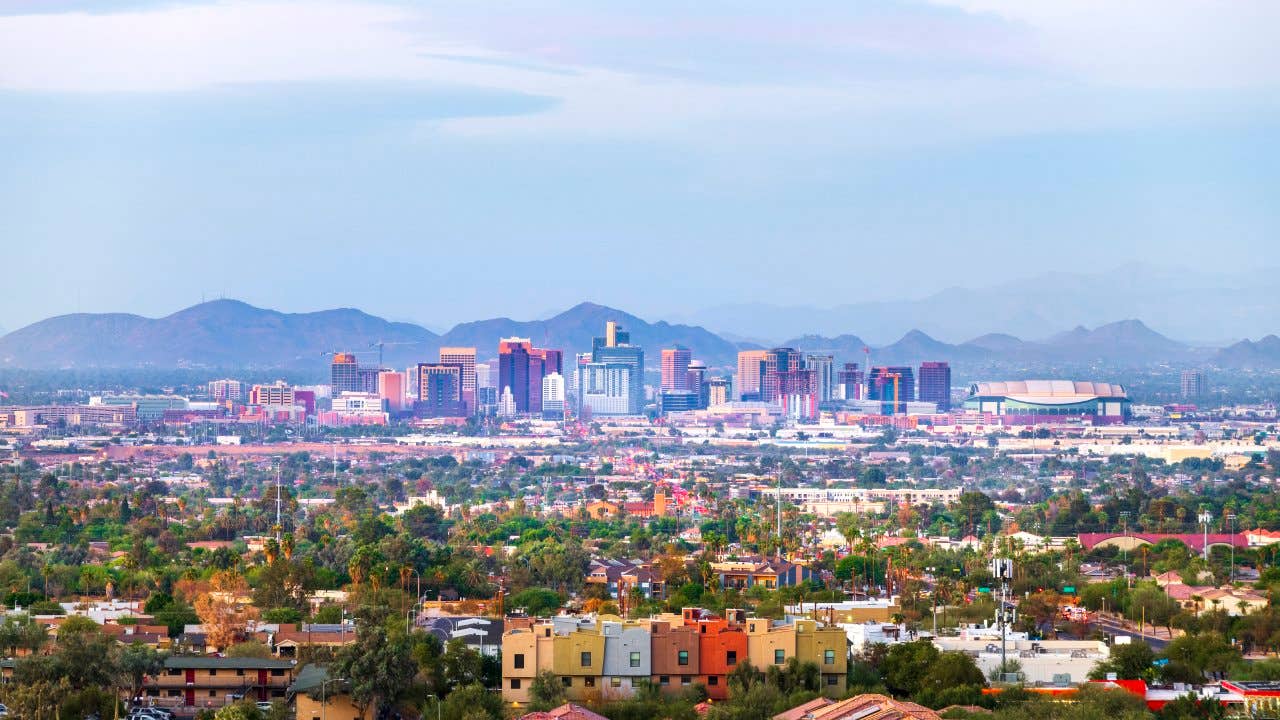Closing costs in Arizona: Who pays for what?

Whether you are buying a home or selling one, the process can be more complex and costly than you anticipate. A real estate transaction involves more than just the home’s sale price: You also have to factor in closing costs, which are the various fees, taxes and expenses that both buyers and sellers have to pay before the deal can be completed.
The good news about Arizona is that closing costs here are cheaper than in many other states across the country. Among all 50 states and Washington, D.C., the Grand Canyon State sits in the middle of the pack, with closing costs averaging around 0.76 percent of a home’s sale price, according to data from LodeStar Software Solutions. Here’s everything to know about closing costs in Arizona.
How much are closing costs in Arizona?
While the annual number of sunny days in Arizona is high, the closing costs you’ll pay are low compared to many other states. The most recent LodeStar data shows that Arizona residents pay about $3,574 in closing costs, not including agent commissions. That’s based on real estate transactions between January 1 and December 31, 2024, with an average home price of $471,436 — but it’s not far off from today’s median sale price in the state, which as of June 2025 was $444,600, according to Redfin.
Arizona is one of several states that does not charge a real estate transfer tax. However, there are many other items commonly included in a transaction’s total closing costs, including fees for title insurance, escrow, recording and mortgage origination.
Note that the final bill for closing costs can differ significantly depending on whether you are the buyer or the seller, and also based on your location and sale price. For example, the median sale price in Sedona is $1.16 million, per Redfin, whereas in Phoenix, it’s less than half that at $456,500. Based on a 0.76 percent closing cost average rate, that makes a difference of $8,816 versus $3,469, respectively.
Who pays closing costs in Arizona: buyers or sellers?
At least some closing costs are paid by both the buyer and seller in a property transaction (in any state, not just Arizona). Sellers are on the hook for most of these costs, but buyers must pay their fair share, too. And if you opt to hire a real estate attorney, their fee will be an additional expense.
Closing costs for buyers
Arizona homebuyers should expect their closing costs to include the following, according to Kristi Smith, executive vice president of Landmark Title Assurance Agency in Phoenix:
- Origination fee: Most lenders charge this fee for setting up your loan.
- Application fee: Some may also charge a processing fee for your application.
- Credit fee: The cost to check your credit is minimal, usually around $25.
- Mortgage points: If you choose to pay points on your mortgage, that expense will be paid at closing.
- Appraisal and inspection fees: Lenders require an appraisal to ensure the home’s value matches the loan amount, and this fee typically costs $300 to $400. A home inspection will cost around the same amount.
- Title fees: A title search is performed to confirm the property is free of liens or other issues, while title insurance can protect against any future claims on the title.
- Recording fees: The city or county where the property is located typically charges a fee to record the transaction. These can cost around $60, Smith says.
- Property taxes: Buyers may be required to prepay property taxes for a certain period, typically six months to a year. These funds will be held in escrow and distributed as needed.
- Agent commissions: Homebuyers may or may not be responsible for paying their real estate agent’s commission fee, depending on the details of the deal.
Closing costs for sellers
When selling a home in Arizona, closing costs will likely include:
- Agent commissions: Sellers will typically be responsible for paying their own agent’s commission, and depending on the details of the deal they may pay the buyer’s agent as well.
- Owner’s title insurance: This protects against any issues with the property title and can cost anywhere from a few hundred dollars to nearly $2,000, depending on the policy.
- Property taxes: Sellers will likely have to pay any outstanding property taxes, up until closing day, at closing.
- Homeowners association fees: If the property is part of an HOA, the seller may have to pay prorated fees at closing too.
- Wire transfer fees: If funds need to be transferred to pay off the mortgage balance, the bank may charge a nominal wire transfer fee.
- Recording fees: Sellers may also be charged a recording fee.
Lowering your closing costs in Arizona
Many aspects of a real estate transaction are negotiable, including closing costs. It is possible for the buyer and seller to negotiate who pays for which closing costs. For example, says Smith, “In some transactions, the seller will agree to pay for a percentage of the sale price toward closing costs to secure the deal.”
However, the bargaining power either party has can vary depending on a range of factors. For example, if a property has been on the market for a while, the buyer may have more leverage to negotiate lower costs. But if there are multiple offers coming in, the seller will have more leverage.
Agent commission fees are often negotiable, as well. This can result in significant savings, especially for higher-priced homes, as the amount is typically a percentage of the sale price.
And for eligible buyers — particularly first-time homebuyers — government-sponsored assistance programs may be available to help cover some or all of their closing costs. Some mortgage lenders offer rebate programs as well, so ask around when you’re comparing local lenders. “Arizona has various programs that assist with closing costs,” says Smith.
Smith notes that discounts are sometimes available for other fees as well: “Escrow and title fees in Arizona are filed with the state; however, you may qualify for a discount, such as an investor or first responder rate. Ask your escrow officer if you qualify for any discounted rates.”
Find a local real estate agent
Finding a great real estate agent to partner with can be invaluable for both buyers and sellers. One of the best ways to begin your search is by asking family and friends for recommendations. Another helpful step is to research an agent online and read reviews from previous clients. Additionally, take the time to visit neighborhoods you’re interested in and make note of agents listed on “for sale” or “sold” signs. Performing your due diligence can increase your chances of finding an agent who can help you navigate the complexities of the Arizona real estate market with ease.
FAQs
Why we ask for feedback Your feedback helps us improve our content and services. It takes less than a minute to complete.
Your responses are anonymous and will only be used for improving our website.
You may also like

7 of the weirdest, wildest, oddball ETFs

What is the maximum Social Security benefit?

Are business loans harder to get than personal loans?



